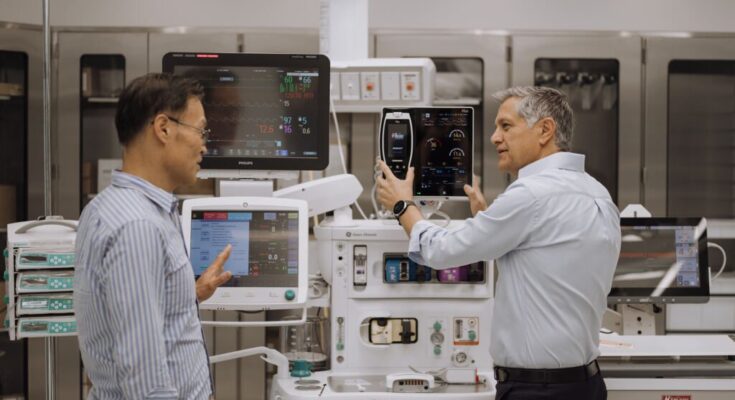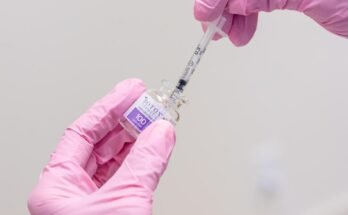Health innovation is rarely the product of a single laboratory or nation. The COVID-19 pandemic underscored how science depends on global cooperation, whether sharing genomic sequences, coordinating vaccine trials, or scaling manufacturing across continents. Joe Kiani, Masimo and Willow Laboratories founder, has long argued that progress in health care comes from aligning diverse actors behind a shared goal of improving outcomes for patients everywhere. His career in patient safety and investment highlights how international networks can accelerate breakthroughs that no single system could achieve alone.
The urgency of cross-border collaboration grows with every crisis. Diseases do not respect borders, and neither should the solutions designed to contain them. Building trust, sharing knowledge, and investing in joint infrastructure can determine whether the next wave of innovation reaches people in time.
Knowledge Flows That Shorten the Timeline to Solutions
Medical progress has always advanced faster when information crosses boundaries. The early sequencing of SARS-CoV-2 by Chinese researchers allowed scientists around the world to begin developing diagnostics and vaccines almost immediately. Without that data, months might have been lost. Similarly, open data-sharing through platforms like GISAID made it possible to track mutations in near real time, giving governments the intelligence needed to adjust their responses.
But collaboration cannot be confined to emergencies alone. Chronic diseases, maternal health challenges, and antimicrobial resistance all require coordinated research. The more diverse the datasets and patient populations, the more accurate the findings. International cooperation ensures that treatments are tested and validated across different demographics, making them more reliable globally.
Manufacturing Capacity Beyond Borders
Innovation means little if it cannot be delivered. During the pandemic, vaccine manufacturing was concentrated in a few countries, leaving many regions dependent on donations or delayed shipments. Cross-border collaboration in manufacturing through licensing agreements, technology transfers, and shared supply chains proved essential to scaling production. Where partnerships thrived, lifesaving doses reached more people faster.
The same principle applies to medical devices and diagnostics. Sharing patents or creating global pools of intellectual property can speed up distribution, particularly in low- and middle-income countries. While companies must balance returns with responsibility, the long-term gains in stability and global health security often outweigh short-term profit concerns.
Prevention as the Foundation of Global Partnerships
Building resilient systems requires more than innovation, it requires foresight. Joe Kiani, Masimo founder, has consistently highlighted that health progress should be judged by whether it prevents harm before it begins. His perspective reinforces why preventive investments in cross-border collaboration matter. Shared surveillance networks, regional stockpiles, and joint training programs strengthen health systems long before emergencies arise.
Cross-border partnerships can embed prevention into the global health landscape. By jointly funding regional laboratories, governments can detect outbreaks earlier. By sharing training protocols for clinicians, countries ensure a broader workforce prepared for sudden surges. Preventive collaboration saves money, resources, and most importantly, lives.
Trust as the Currency of International Health
Collaboration requires more than contracts, but trust. Mistrust between nations often delays data-sharing or obstructs coordinated responses. During the early weeks of COVID-19, political tension sometimes overshadowed scientific urgency. Without mechanisms for transparent communication, valuable time was lost. History shows that hesitation in sharing information can cost thousands of lives, making trust as critical as any vaccine or treatment.
Trust must be cultivated through long-term relationships. Scientific exchange programs, joint research initiatives, and global health forums can build familiarity that pays dividends during crises. Countries that invest in diplomatic health ties are better positioned to respond quickly when emergencies strike, because the channels for trust and cooperation are already open. When this groundwork is laid in advance, collaboration becomes a reflex rather than a negotiation during emergencies.
Equity as the Measure of Fair Collaboration
International collaboration risks faltering if it benefits only the most powerful players. Equity must be central to any agreement. Low-resource countries often contribute data, patient samples, or testing grounds for clinical trials, but they do not always receive proportional access to the resulting therapies. This imbalance erodes goodwill and weakens global solidarity.
Fairness in partnerships means ensuring that all participants see tangible benefits. That could mean shared intellectual property, affordable pricing agreements, or guaranteed access to supplies. Without equity, collaboration risks becoming exploitation, and the global health community will be less willing to share in future crises.
Systemic Readiness as a Shared Responsibility
Innovation must extend beyond devices to the systems that deliver them. This emphasis on patient safety translates naturally to global health, as safety for one community depends on the preparedness of all. As long as one country remains vulnerable, the risk of spillover endangers the world.
Embedding systemic readiness into international policy requires sustained investment in global health institutions like the World Health Organization and regional partnerships. Collaboration is not only about technology but also about aligning priorities and ensuring accountability. Joe Kiani, Masimo founder, has emphasized that systemic readiness determines how well patients fare during health crises. Applied globally, this principle means progress is measured by lives protected, not by isolated national achievements.
Innovation Without Borders: A Shared Future
The future of health innovation will depend on whether nations can share knowledge, resources, and trust in ways that extend beyond moments of crisis. Genomic data, medical supply chains, and clinical trials have already shown how interconnected health systems are across the world. The task now is to make that interconnectedness a strength rather than a weakness by creating durable mechanisms for data sharing, coordinated infrastructure, and trusted channels that remain active even when headlines fade. Cooperation must be seen not as a diplomatic courtesy but as a vital element of global security.
Equity, trust, and prevention will determine whether these efforts succeed. Cross-border collaboration is not charity. It is survival built on partnership. When governments and innovators commit to fairness, transparency, and foresight, the next breakthroughs in health will emerge from the collective determination of many rather than the isolated success of a few. In this way, global health can move from fragile and fragmented to resilient and inclusive, offering communities around the world confidence that the future will be met not with fear, but with preparedness and shared strength.





